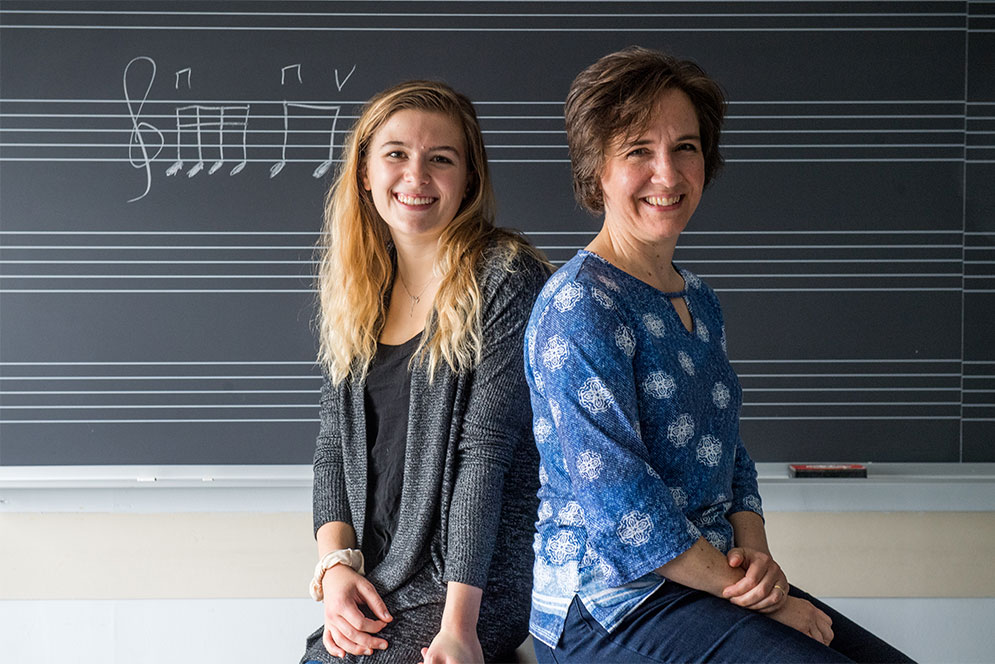BU Today feature: Suzuki Method: Respect and Repetition the Best Teachers

This article was originally published in BU Today on December 3, 2018. By Rich Barlow
To the average person, Suzuki is a motorcycle. To Madeline Bucci, the word conveys an educational philosophy that could revolutionize how we educate the world’s youngest children.
The Suzuki method, named for its developer, violinist Shinichi Suzuki, is an approach to learning musical instruments that emphasizes mutual respect between teacher and pupil. Teachers encourage students with praise, looking for anything about their effort and output to laud. Suzuki, who died in 1998, believed that innate aptitude is overrated—instead, as Bucci (CFA’19,’20) sums up his thinking, “everyone is always learning.”
That’s the title of a study she wrote for BU’s Undergraduate Research Opportunities Program (UROP), which matches students with faculty mentors across the University and provides funding for projects. Bucci examined the Suzuki Preschool of Newton (Mass.), which integrates the Suzuki method into its music instruction—while also integrating music and the Suzuki approach into its broader curriculum, from reading and writing to Mandarin.
The Suzuki method also stresses parental involvement in children’s learning, group learning, and listening to music from early childhood. The Suzuki Preschool is one of only two preschools in the country that apply the approach to general education (the other is in Atlanta), says Bucci’s project advisor, Karin Hendricks, a College of Fine Arts assistant professor of music and music education.
Bucci’s research made her a believer in Suzuki’s power to improve education—music and nonmusic—by encouraging students and reinforcing their belief in the power to learn.